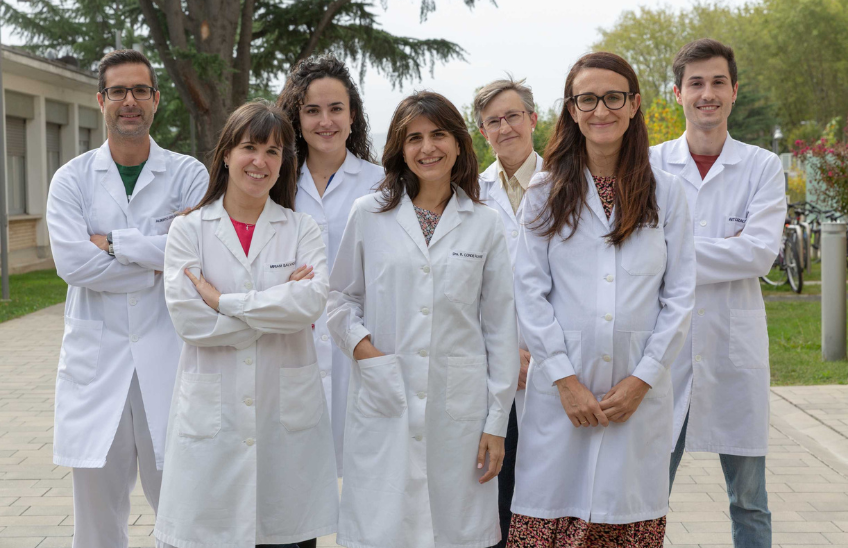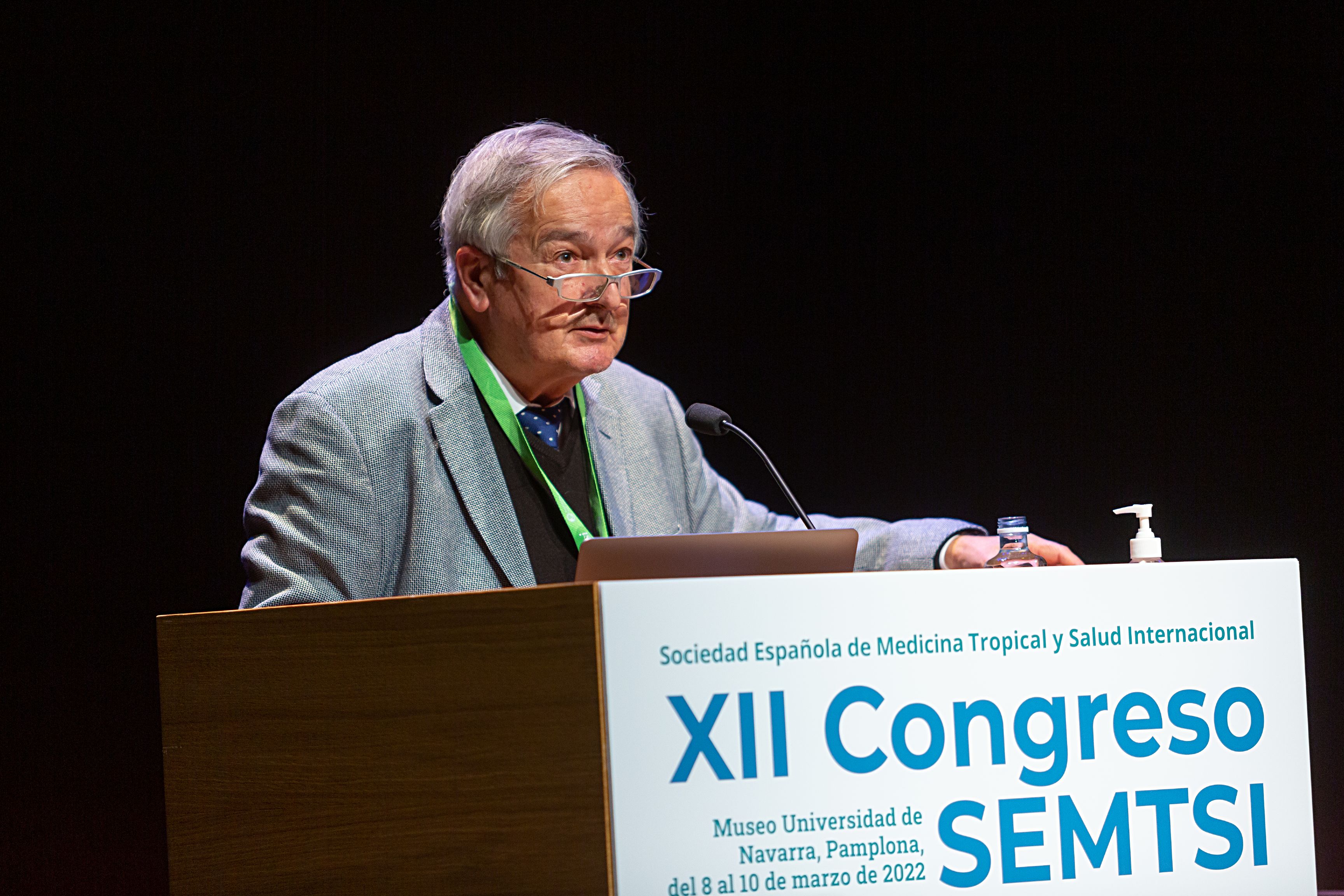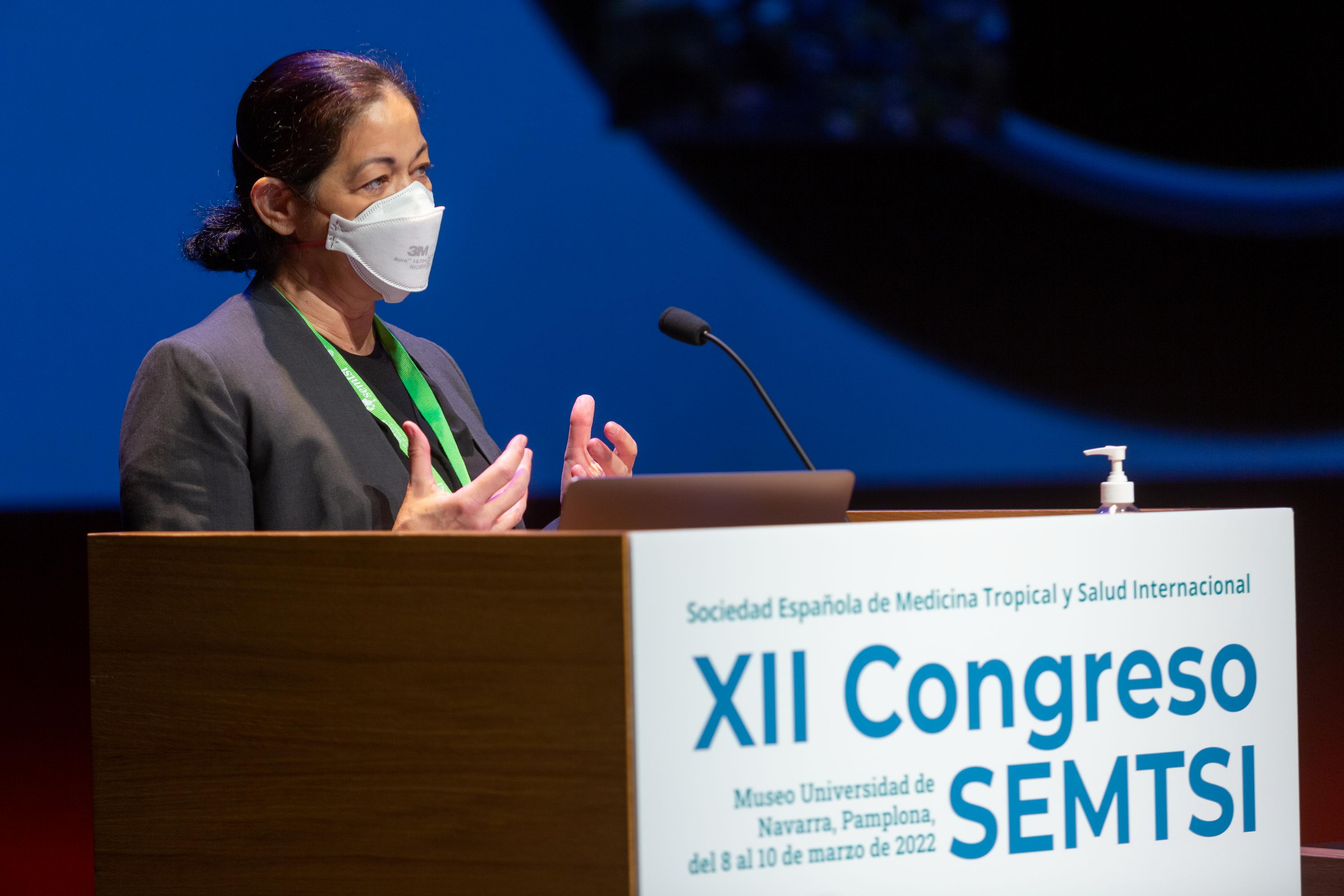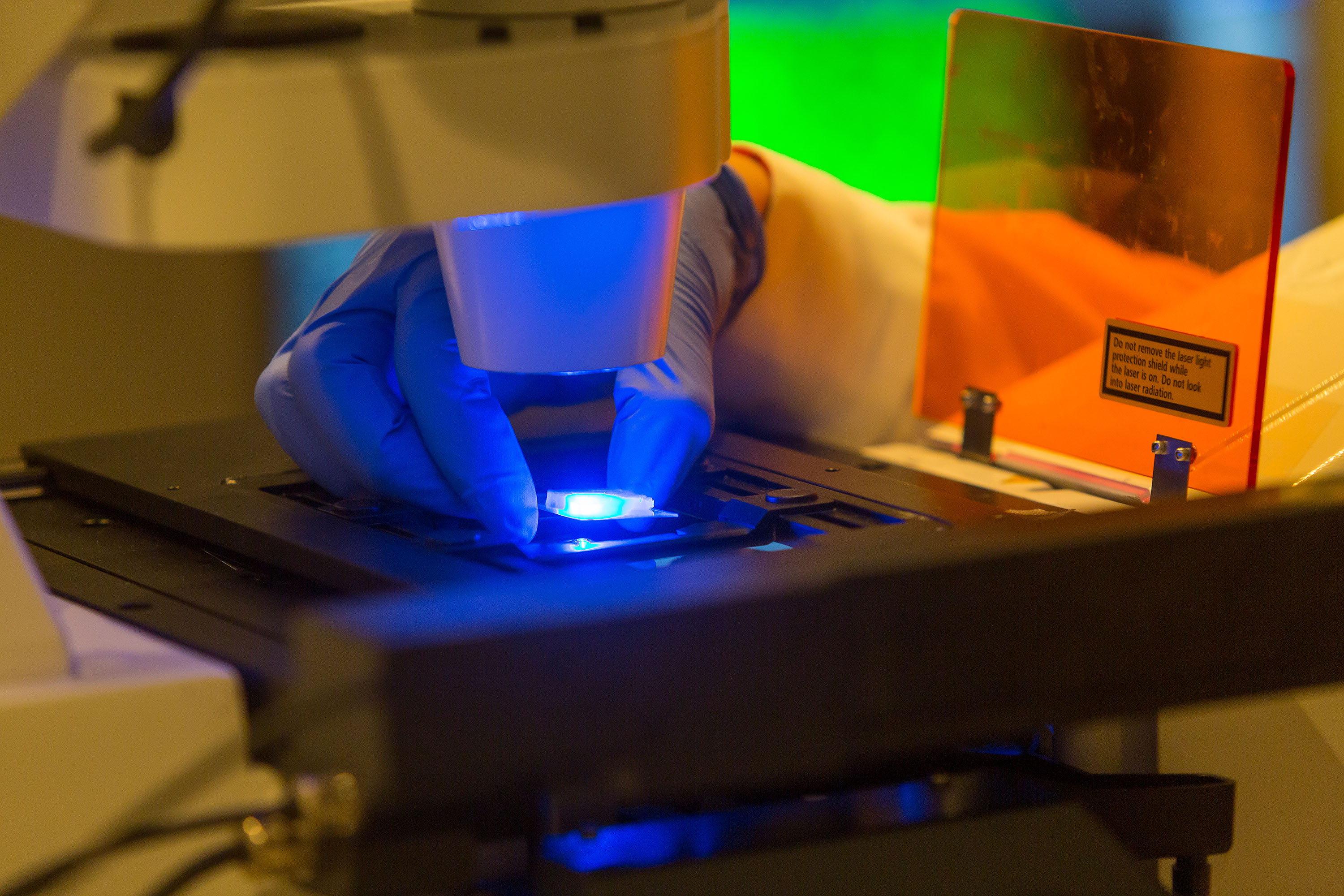Fernando Simón: "Antibiotic resistance is the biggest health threat we will face in the coming years".
The director of the Centre for Coordination of Health Alerts and Emergencies of the Ministry of Health has participated in the XII congress SEMTSI and the high school of Tropical Health University of Navarra.
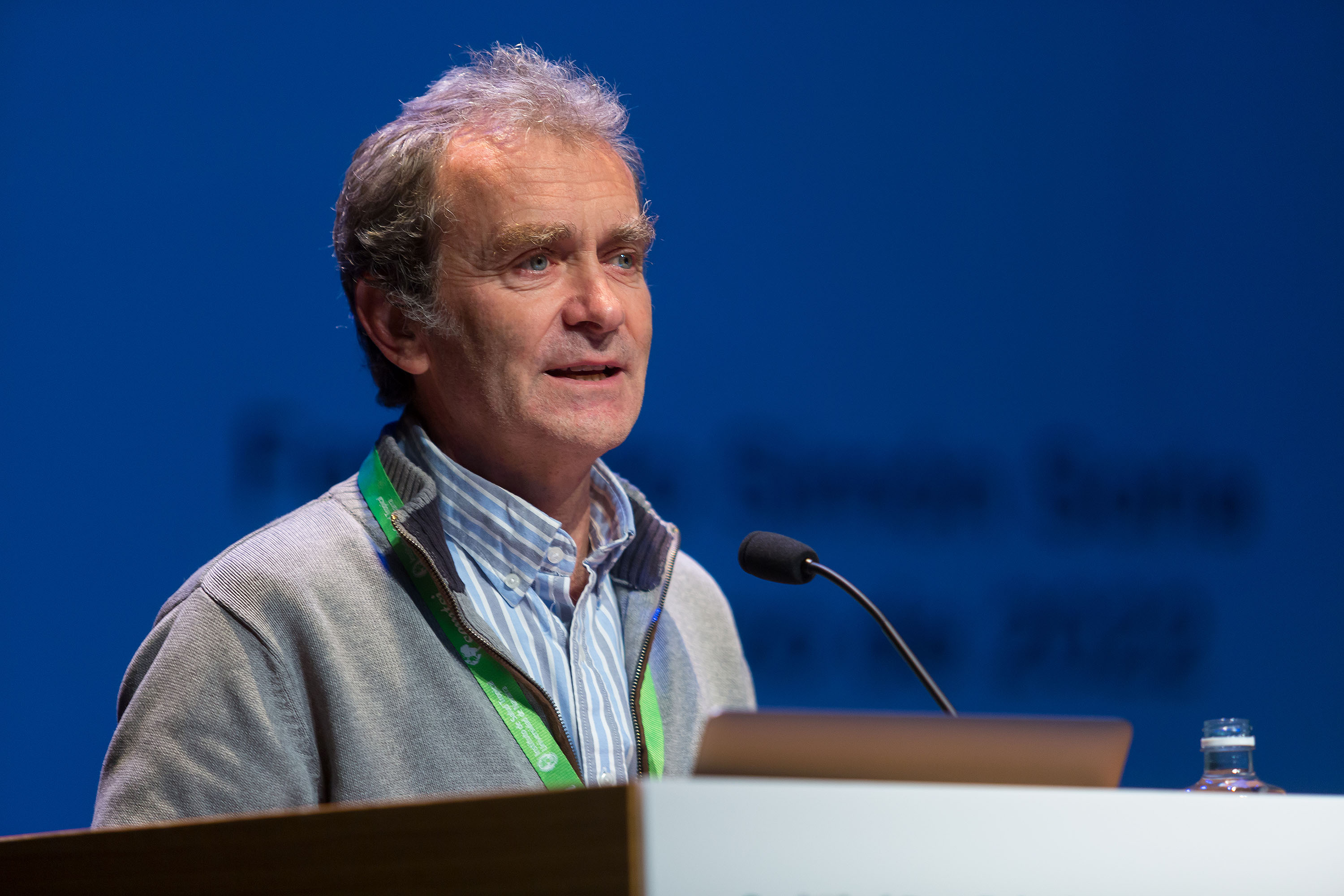
FotoManuelCastells/Fernando Simón, during his intervention at the congress organised by SEMTSI and the high school de Salud Tropical Universidad de Navarra (ISTUN).
09 | 03 | 2022
The director of the Health Alerts and Emergencies Coordination Centre of the Ministry of Health, Fernando Simón, participated in the XII congress of the Spanish Society of Tropical Medicine and International Health (SEMTSI) and the high school of Tropical Health University of Navarra (ISTUN), which is being held at the Museum. During his lecture, entitled The world, people and health emergencies, Fernando Simón referred to the global alerts we have faced during this 21st century, such as SARScov 1, influenza A, the outbreak of salmonellosis that affected Spain in 2005, MERS in 2012 and the Zika virus in 2016, to mention the current pandemic of covid-19. Above all, he stressed: "Antibiotic resistance is the greatest health threat that we are going to have to face in the coming years". Simón advocated the establishment of control measures and partnership between doctors, patients, pharmaceutical companies and public administrations to ensure optimal use of these drugs.
During the session, he analysed the factors that influence the evolution of infectious diseases, whose high rate of transmission is mainly due to globalisation and the massive mobility of people. "Pandemics have always existed, what has changed is the way in which they spread and affect society, because the population has also changed. There are 7.9 billion people in the world and a huge mobility of individuals and goods, and therefore diseases, but we also have tools that allow us to control this," he explained.
He then cited some of the most effective prevention systems: surveillance and protective measures, health and technological advances, people's access to the health system, prevention and treatment, and sanitation tools. "All of this has emerged from the global development which has helped us to be able to prevent diseases and detect health problems. Very important advances have been made, which were unthinkable years ago, which ensure that the impact of diseases is less than it would have been in the past," he added.
"The virus is going to be there, it's going to keep circulating".
In response to questions from the audience, Simón stressed that the Covid-19 epidemiological status has changed. He highlighted the high percentage of vaccination of the Spanish population, did not rule out the possibility of new waves and advocated continuing to protect the most vulnerable people. "The epidemiology of the disease has changed and the case fatality rate is eight times lower than in January last year. All this has happened at a time when we have hardly any control measures in place and with a variant that is more transmissible and with an incidence eight times higher than a year ago. We have to accept that the virus is going to be there, that it is going to continue to circulate, but what we must not allow is for serious cases to increase again. We must ensure that the vulnerable population is protected," he said.
Simón added that it is difficult to make predictions about the behaviour of this virus, although he said: "I don't know if it will be necessary to give booster doses, we will have to wait for the evidence and it is most likely that we will not have so many serious cases. We may have more or less important waves of incidence, because globally there is still a lot to do.
He also said that mechanisms are being put in place to reduce the incidence and to be able to respond better. "The best way to be prepared for new waves is to protect the vulnerable. There may be transmission, there may be an increase in cases, but with a lower incidence than in countries with lower vaccination coverage fees ," he concluded.

